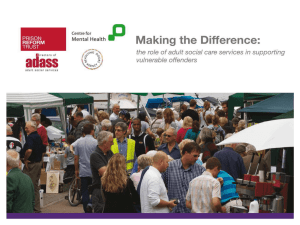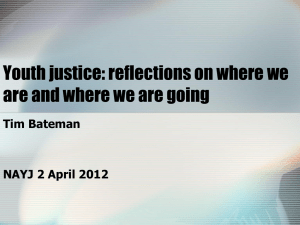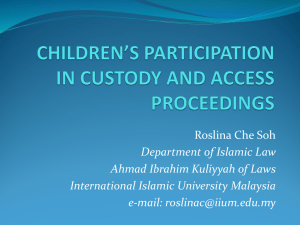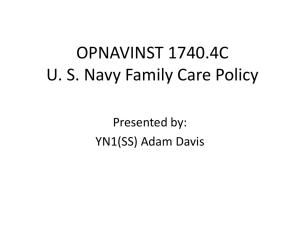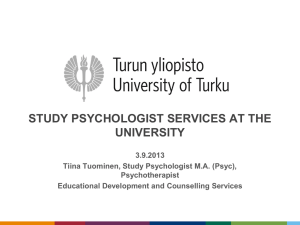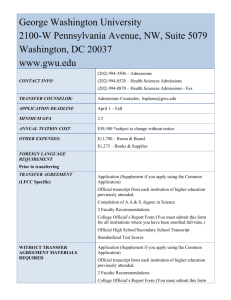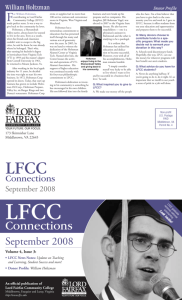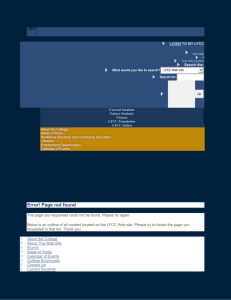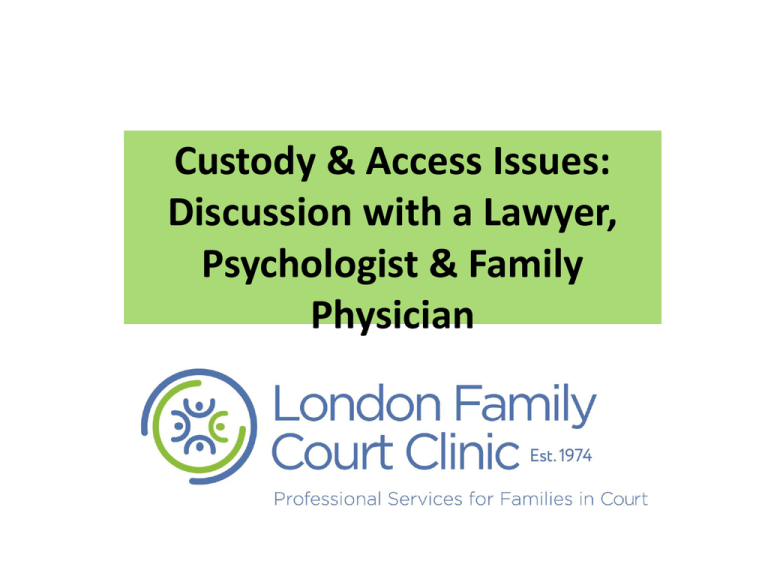
Custody & Access Issues:
Discussion with a Lawyer,
Psychologist & Family
Physician
• Presenters:
– Lawyer: Steven Benmor, Toronto
– Family Physician: Dr. Gina Agarwal, Hamilton
– Psychologists:
• was to be Dr. Dan T. Ashbourne, at LFCC in London was to present
but a sudden family issue led to regrets and forwarding this role
• on short notice the Psychology role is being graciously covered by
Dr. Marlies Sudermann, formerly of LFCC, and now in Private
Practice, offering various Psychological services.
•
Steven Benmor of Benmor Family Law Group is certified as a specialist in family
law by the Law Society of Upper Canada. He graduated from the University of
Toronto with a Bachelor of Science, then from the University of Windsor with a
Bachelor of Laws and then from York University with a Master of Laws (Family
Law). He is one of the 43 Canadian Fellows of the International Academy of
Matrimonial Lawyers. He was a past adjunct professor of family law at Osgoode
Hall Law School and at Seneca College of Applied Arts and Technology. He
previously served as a panel lawyer with the Office of the Children’s Lawyer and
the Office of the Public Guardian and Trustee. His many volunteer positions
include Chair of the Board of Access for Parents and Children of Ontario, Chair of
the Family Law Section of the Ontario Bar Association, Founding Director and
Treasurer of the Ontario Chapter of the Association of Family and Conciliation
Courts, and Director of the Ontario Network for the Prevention of Elder Abuse. He
was a member of the Expert Advisory Group on Family Justice Improvements to
the then Attorney General, the Honourable Chris Bentley. Steven is a frequent
writer, presenter and contributor to family law education and press coverage. He
was awarded the 2012 Distinguished Service Award by the Ontario Chapter of the
Association of Family and Conciliation Courts.
• Dr. Gina Agarwal, MBBS PHD(Epidemiology)
MRCGP CCFP FCFP:
– Trained as a GP in England, Gina is an associate
professor in the Department of Family Medicine
and she works as a family physician at the
McMaster Family Practice (MFP) and trains
residents. She has been a practising family
physician for nearly 20 years. Some of her special
interests are the Doctor-Patient Relationship,
Continuity of Care, and the care for victims of
domestic violence in Family Practice.
• Dr. Dan Ashbourne is a Registered Clinical Psychologist in the
province of Ontario, and currently Executive Director at the London
Family Court Clinic (LFCC) in London, Ontario, Canada. This unique
Clinic is specifically designed to work with children and their
families involved with the legal/clinical systems. In addition to
overseeing the leadership of the Clinic, Dr. Ashbourne provides
assessments and consultations to the Courts for the Youth Justice,
Child Welfare and/or Custody and Access Programs, He also
provides consultation to the Alternative Dispute Resolution
Coordination Service called ADR-LINK and the Fetal Alcohol
Spectrum Disorder (FASD) Virtual Assessment Clinic at LFCC. Dr.
Ashbourne brings more than 25 years of clinical experience that
enables him to speak on the impact of children’s exposure to
domestic violence and/or child abuse, best practices related to
parenting assessments, as well as children and their parents in the
midst of difficult divorce and/or separation challenges.
• Dr. Marlies Sudermann, C. Psych.
• Previously a psychologist at the London Family
Court Clinic (LFCC) for many years
• Now in private practice in London Ontario
• Provides psychological services for families
involved in court matters related to custody &
access or Child Welfare matters (PCA/C&A) etc.
• Supervises others gaining registration with the
College of Psychologists of Ontario
• Provides training and consultation
Some Specialized Psychological
Services that can be provided
• Custody and Access Assessments (CLRA sec. 30) – Parenting plan
evaluations to assist family and/or the Court in determining best interest
of children related to parenting time and decision making
• Parenting Capacity Assessment (CFSA sec. 54) – Court-ordered evaluation
for families involved with the CAS to examine parenting capacity and make
recommendations in the best interests of the children
• Fee for Service Specialized Assessments – evaluations with a specific
referral question related to diagnostics, intellectual disability, capacity to
testify, FASD, Access, Attachment, Trauma, etc.
• Family Mediation and Parent Coordination – assisting families to get
beyond the crisis situations that bring them to the justice system
Coordination , Consultation,
Training, & Research
• Alternative Dispute Resolution (ADR) – linking families experiencing CAS
involvement with consultants to facilitate best resolutions for all involved
• Parent Education and/or Counselling for parents/children/families related
to separation/divorce issues and how to navigate the changes ahead.
• Training – professionals providing training in a wide variety of topics such
as separation and divorce impacts on parents and children.
• Research/Education – LFCC has produced many publications through the
years as found on the website at (www.lfcc.on.ca)
Scenarios for Discussion
•
Case #1: Jessica is the mother of a 7 year old boy, and well educated, working in the health care
sector. She is now divorced, separated for 3.5 years. Custody and access has been settled as joint,
though the trial was very difficult and the father’s lawyers raised the issue of parental alienation on
her side. The boy’s father has now moved a 1 hour drive away from the school. He was violent and
abusive to Jessica (as per her testimony, over a period of 7+ years), and though the case went to
criminal court he was not found guilty. Over the space of 3-4 years, she has disclosed after each
incident to her family doctor, scenarios where the father has shown up in her neighbourhood and
driven repeatedly past her house on a non access day, refused to pay his share of the boy’s
expenses, refused to return the clothes she sent her son to him in, refused to take the child to
soccer practice, refused to allow enrollment in summer camp, refused to let her have the week
vacation she wants with the child etc. etc.. She tries to appease him at every dispute but this is
getting very difficult. Her court agreement states that they must get a parental coordinator if they
are unable to decide on parenting decisions. They are now at loggerheads over which summer
weeks she can have and he wants a parental coordinator. She is terrified and does not want to have
a parental coordinator since her experience with all the custody and access assessments was that
she was labelled as a ‘parental alienator’ and the abuse she suffered and is suffering on an ongoing
basis is brushed aside/minimised as high conflict.
•
How can the parental coordinator be chosen/ not chosen and how can her fears be dismissed?
Scenarios for Discussion
•
Case #2:
•
Sharon is a 32 year old mother of a 4 year old girl and 20 month old girl. She became separated when her husband left her during the early stages of
her recent pregnancy. She is now divorced. She has joint custody with her children’s father, a University Professor. As stipulated in their separation
agreement, the children remained with her primarily until the youngest child was 1 year of age. Their father was not involved in their care at all in the
early stages of their life, and was not concerned about not being involved (he had taken up with one of his female students). Sharon is a PHD level
researcher, and prides herself in having been able to cope with her girls, and her work both, without letting either suffer. Since the younger child
turned 1, as stipulated in the separation agreement, the children have been going to their father’s house for the whole weekend, from Friday night
to Sunday evening. Sharon found it very hard to hand over the 2 girls, and was worried about them. She would send a book to be filled in, in which
she would put information about routines, illness, feedings etc, but this book was lost after she sent it and when she made another, it is never filled
out by the father. He doesn’t think there is a problem because ‘they come back fine don’t they?’ The baby screams every time at handover, and the 4
year old says she doesn’t want to leave Mommy, and cries. The father is not concerned by the screaming. Sharon was very distraught initially, and
came to her Family Doctor, with acute signs of grief, anxiety and panic when her girls leave her. She had an episode when she was grief-stricken,
missing her girls, in the middle of a yoga class and had to leave sobbing uncontrollably. She was embarrassed and heart-broken. Her family doctor,
and other friends around her, told her that she would get used to it and so would the children. Eight months have passed, nothing much has changed
emotionally or with the girls’ behaviour. Now her 4 year old tells her that their father is not really looking after them much and works at the
weekends. They are being looked after by his 20 year old girlfriend, who was a student of his at University, whom he had an affair with and left
Sharon for. She is currently pregnant. Sharon is very upset that she is not able to spend the weekends with her children, but another woman looks
after them. Sharon is fine when the girls are back with her and life returns to normal, and she has no emotional issues, but she dreads the weekends
when the girls will go. She has taken the advice of others, her family and her doctor, and keeps herself busy when they are gone, and treats herself
and does chores as well. But she feels ‘empty, desolate and hopeless inside,’ during those weekends. This feeling has not diminished over the 8
months that they have been going. She comes to the family doctor again when the youngest child is 20 months, asking why her emotions are not
settling. She thinks she may have ‘empty-nest’ syndrome or depression, and that she may need counselling or medication. She is asking for a referral
to a really good counsellor who understands what being a mother is about and who can help her. She is also asking if there is a support group for
other mothers like her.
•
What type of counselling /psychology intervention would she benefit/not benefit from?
•
Will medication help her and why/why not?
Scenarios for Discussion
•
•
•
Case #3:
Jenn is a 38 year old nurse, and mother of twin boys aged 5years. She attends the doctors’ office in
an ‘open access/same day’ booking slot to see the ‘duty’ doctor (she was unable to get a spot with
her regular doctor who knows her well). It is a Thursday and tomorrow the boys will go for a 10 day
stay with their father. Jenn wants the children to spend time with, and develop a meaningful
relationship with their father, but she is worried by the things they say to her and how she will be
portrayed if she discloses them. Her marital relationship with their father was one in which he was
more powerful than her, and he would threaten her with various embarrassing scenarios if she did
not behave as he wanted. When they divorced he litigated her for full custody of the children. The
trial was lengthy and costly. It was emotionally harrowing for her, since she could not afford a ‘Bay
Street’ lawyer, and she was accused of being an unfit mother, a drug abuser, a child abuser and a
parental alienator (all were unfounded). During that time when they boys were 3, she called CAS
due to one of them having had his shoulder dislocated after being yanked by his father. Jenn was
concerned about the boys’ safety and how her sons’ shoulder could be dislocated after being
pulled. CAS investigated and nothing was found. She was labelled further as a parental alienator by
the fathers’ lawyer. Now she comes to the duty doctor asking that someone help her. The children
openly state that they do not want to go to Daddy’s since he is mean, and always angry. They are
worried that they will get smacked or their ‘arms broken again’. She has tried to tell herself that it
is nothing, but she is genuinely afraid for them. She fears that if she raises concerns then she will be
labelled as an alienator again and may lose full custody of her children, but if she does not and
something happens she will not have listened to her children.
What is the best course of action for the children?
Scenarios for Discussion
• Case #4:
• One of the parents in a custody dispute is seeing a psychologist for
therapy to help with marital conflict that is affecting everyone in the
family and to ensure their anger does not spill over on the children or expartner. The Psychologist has also directed his/her client to see their GP
for medication for depression and anxiety stemming from the ongoing
conflict. The Lawyer for the other parent has become aware of this and is
planning go after the records of the psychologist and the GP to build a
case of mental health issues , anger problems, and poor parenting, and to
try to sway the court in the favor of the other parent with regards to
custody?
• What should/could each of the professionals (Lawyer, GP and
Psychologist) do to navigate this so as to ensure valuable information is
before the court but not to make matters worse?
Scenarios for Discussion
• Case 5:
• The GP receives an Authorization & Direction from
both spouses’ lawyers asking for a “complete,
unredacted copy” of the patients’ medical charts and
children’s medical charts, which the GP knows contains
notes of unverified complaints against the other
spouse by each of the parents and problems noted by
the oldest child (aged 14) about each of the parents’
behaviours during the custody dispute.
• How should the GP proceed?
Scenarios for Discussion
• Case 6:
• The GP receives a letter and consent form from a
psychologist who is conducting an custody
assessment, seeking information about the
patient’s mental and physical health and any
observations made of his/her interactions with
the children.
• What should/could the GP do to navigate this
request? What could arise depending on what is
provided?
Scenarios for Discussion
• Case 7:
• The patient discloses that she is divorcing and
needs a letter from her GP to confirm the past
and recent abusive behaviours by the ex-partner.
• The GP also treats the husband and children.
• What problems do you foresee for the GP if
she/he writes the letter? Or does not write a
letter? How else could this matter unfold?
Scenario #8
• Bill Simpson has two children (Tim - 5 years old, and Wendy - 8 years old)
who live with their mother, Nicole Morris (26) and maternal grandmother,
Winnie Rankin (56). His two children, Tim and Wendy, see their father at
the local supervised access program once a week for 2 hours on Tuesday
afternoons from 4-6 pm. Bill has attended a local residential substance
abuse program, as well as various anger awareness groups during the past
year while on probation. Recently, he began individual therapy with his
pastor about his past domestic violence towards Nicole in their on-againoff-again relationship over the past 9 years. With regards to the children of
Bill and Nicole, Wendy is hesitant to attend visits with her father. She has
also been experiencing considerable difficulties at school and home with
regards to her aggressive behaviors and troubles focusing in class that
seem to be hampering her learning. There has been a referral to the
school social worker for counseling to provide support for her while at
school as well as the school psychologist for an assessment. Tim is very
quiet, shy, and rarely talks. He will not attend visits with his father without
his sister.
Scenario #8 continued:
• Nicole has recently met a new same sex partner, Jane, aged 24 who is a
dental assistant with no children. Nicole is becoming serious with Jane but
reports that violent disputes between the two of them have sometimes
required police involvement. Nicole and Jane are looking for a change in
order to make things better between the two of them and the two
children, and have indicated they are contemplating moving out west.
Nicole would like to break all ties with Bill and her own mother, for a fresh
start. Nicole currently works as a file clerk in a doctor’s office and has held
the job for the past 4 years and hopes to find something similar out west.
Currently her mother provides child care for the children when they are
not in school. Bill, however, has learned of the potential of the family
moving west and wants to prevent this from happening. He has filed a
motion with the Courts to prevent the move out west of his children, and
requested an Office of the Children’s Lawyer assessment be ordered by
the Court.
Questions for Scenario #8
• As the GP at the office where Nicole works, you
are asked to write a letter of reference for her for
future employment consideration.
• Later Nicole asks you to also write a letter
outlining her good parenting skills in order to
support her move out west with the children.
• What issues arise with regards to these two
letters requested?
More Questions on Scenario #8
• As a psychologist, you are completing the school
assessment of Wendy and have been asked to provide
a copy of the assessment (which outlines some
fears/worries of the child) to the mother’s lawyer.
What do you do?
• As a psychologist for the school board you are
considering opening up a small private practice and
thus offer to complete a custody assessment for the
mother, her new partner Jane, and the two children.
Do you see any concerns about proceeding?
Questions for Scenario #8
• As the Lawyer working for the OCL you have been
assigned this case and how do you proceed?
• Who would you want to talk with?
• How would the voice of the oldest children be brought
forward?
• The mom wants you to support her move west and
how do you handle this request?
Comprehensive Best Practice
Assessment: Final points
• Remain Neutral / Impartial / Unbiased /clarify
questions/role(s)
• Use Multiple sessions (over several months)
• Multi-disciplinary input can be very helpful
• Multi-methods to include
(test/Observe/interview/collaterals gathered)
• Multiple sources of information (GP, School, kids,
extended family/friends, therapists, etc.)
• Multiple contexts (office, home, school, etc.)
Further Training needs &
Contact Information
Dr. Dan T. Ashbourne, C. Psych.
Executive Director & Psychologist:
London Family Court Clinic
dan.ashbourne@lfcc.on.ca
cell 519-494-0557
Office 519-679-7250 x107
www.lfcc.on.ca


